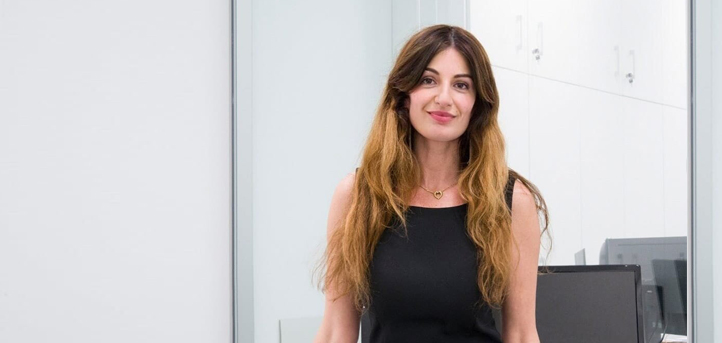Silvia Aparicio, Vice-Rector for the Faculty and Academic Planning at the European University of the Atlantic, gives an interview on how online teaching is progressing during the Covid-19 confinement period.
How has the process of moving from the classroom to virtual teaching been accomplished?
Teamwork. The Vice-Rectorate for the Faculty and Academic Planning, together with the Quality and Teaching Office, the Academic Directors and the professors from each of the degrees, has worked extensively on adapting the subjects taught in the classroom into the virtual model. It has not been an easy job, but the experience of having several online Master’s programs in our academic offer has been of great help. Our concern has been to offer the best quality in teaching, given the circumstances, while aiming to meet the expectations as laid out in the syllabuses, competences, and learning outcomes.
To do this, an overall planning of all second-semester subjects was carried out, setting five teaching periods where a subject from each academic year and degree would be taught. The other subjects during this period would be placed on hold to ensure that the student concentrates their attention and effort on one subject every three weeks.
How is this situation being handled by the teaching staff?
Professors have tried to stay in touch with students since the first state of alarm was announced. During the first two weeks, in parallel with the process of reorganizing distance learning, we tried to move forward as much as possible with the work for the different subjects.
Our teaching staff is making an important effort to adapt the subjects to this new way of teaching.
In general, these are young professors comfortable with digital tools, but all of them thanks to their great disposition, concern for student learning, and our Virtual Campus technical service, have finally managed to ensure that everything is progressing satisfactorily.
Teachers have adapted quickly by creating new subject lesson plans and excellent teaching materials (content, videos, self-assessment tests, forum activities, a question bank, etc.) in record time.
New evaluation activities have also been created so that they may be corrected through the Virtual Campus.
The professors are monitoring the students’ entire learning process and are available to address any questions or issues through the Virtual Campus.
What is the biggest drawback you’re facing?
Well, the biggest difficulty is the extracurricular placement portion of certain subjects. To do this, we are following the instructions received from the Ministry of Universities, the Conference of Rectors of Spanish Universities (CRUE), the National Agency for Quality Assessment and Accreditation (ANECA), and the Conferences of Deans of each of the Faculties, among other educational institutions.
What solutions are being implemented for these problems?
From the very beginning, within the planning stage of the five teaching periods, we placed those subjects composed of a large portion of extracurricular placement in the last period from 8 to 26 June in the hope that perhaps we could teach this content in situ.
These are subjects that require taking place in Laboratories, Sports Facilities, etc.
Regarding the tools being used for online teaching, what kind of tools are you using?
We have two tools within our Virtual Campus in support of our students’ educational process. These are mainly:
- Self-recordings summarizing the contents for each of the sessions. These are recordings that students will review at a later date. They are educational bits of between 10-30 minutes long for each of the topics.
- Live tutorials: These tutorials do not impart an extensive lesson but clarify any questions or issues raised by the students. It is about having direct contact with the students.
How will this academic experience be used in the future?
We must adapt to a new reality where online teaching is here to stay. For the next academic year, universities will have to offer a methodology that integrates the classroom and distance learning. The things we had to do to solve the problems for this term in an emergency context will have, in the next year, have to become a solution that combines both systems in a mature and competitive manner. We must be able to provide efficient, complete, and increasingly satisfying learning experiences.
It will be a challenge for all, for students, teachers, and the University, for education to reach novel and more flexible and up to date dimensions.
What do you miss most about face-to-face classes?
Real eye contact with my students, their smiles, their questions in class, the discussions, when they sought my council after class, the conferences we attended together, etc. For me, the real-world wins, not the virtual one. We will adapt, yes, but there is nothing like real and face-to-face meetings. In the University and in life.


